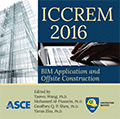International Conference on Construction and Real Estate Management 2016
The Role of Urban Villages in the Urbanization Process in China: The Case of Shenzhen
Publication: ICCREM 2016: BIM Application and Off-Site Construction
ABSTRACT
As a unique phenomenon of urbanization in China, the emergence of urban villages has attracted considerable attention from the academic community. Adopting an institutional approach on land development, this study analyzes how the land property rights regime affects village-led land development behaviors and spatial outcomes in urban villages. Using a set of reliable data from Shenzhen, the empirical study shows that although unequal land rights under the current land property rights regime impose severe institutional constraints to the development of urban villages, they actually play a much more important and diversified role in China’s urbanization than previously recognized. As the primary developers of urban villages, villagers have adopted various land development strategies in response to the changing market environment and internal economic conditions in the dynamic urbanization process. These dynamic strategies have contributed to the coexistence of sub-optimal industrial development and high-quality housing development in urban villages.
Get full access to this chapter
View all available purchase options and get full access to this chapter.
REFERENCES
Deng, F. (2009). “Housing of limited property rights: a paradox inside and outside Chinese cities.” Housing Studies. 24(6), 825–841.
Guy, S. and Henneberry, J. (2002). “Bridging the divide? Complementary perspectives on property.” Urban Studies,39(8), 1471–1478.
Healey, P. and Barrett, S.M. (1990). “Structure and agency in land and property development processes: some ideas for research.” Urban Studies, 27(1), 89–103.
Lai, Y., Peng, Y., Li, B. and Lin, Y. (2014). “Industrial land development in urban villages in China: a property rights perspective.” Habitat International, 41(1), 185–194.
Lin, Y., Meulder, B. and Wang, S. (2011). “Understanding the ‘Village in the City’ in Guangzhou economic integration and development issue and their implications for the urban migrant.” Urban Studies, 48(16), 3583–3598.
Liu, Y., He, S., Wu, F. and Webster, C. (2010). “Urban villages under China’s rapid urbanization: unregulated assets and transitional neighborhoods.” Habitat International, 34(2), 135–144.
Liu, Y., Li, Z., Liu, Y. and Chen, H. (2014). “Growth of rural migrant enclaves in Guangzhou, China: agency, everyday practice and social mobility.” Urban Studies, 52(16), 3087–3105.
Long, H., Li, Y., Liu, Y., Woods, M. and Zou, J. (2012). “Accelerated restructuring in rural China fueled by ‘increasing vs. decreasing balance’ land-use policy for dealing with hollowed villages.” Land Use Policy, 29(1), 11–22.
North, D.C. (1990). Institutions, institutional change and economic performance, Cambridge University Press, Cambridge.
Paik, W. and Lee, K. (2012). “I want to be expropriated: the politics of Xiaochanquanfang land development in suburban China.” Journal of Contemporary China, 21(74), 261–279. (in Chinese).
Pejovich, S. (1990). The economics of property rights: Towards a theory of comparative systems, Kluwer Academic Publishers, Dordrecht.
Po, L. (2008). “Redefining rural collectives in China: land conversion and the emergence of rural shareholding co-operatives.” Urban Studies, 45(8), 1603–1623.
Song, J. (2015). “Official relocation and self-help development: three housing strategies under ambiguous property rights in China’s rural land development.” Urban Studies, 52(1), 121–137.
Tian, L. (2008). “The chengzhongcun land market in China: boon or bane? A perspective on property rights.” International Journal of Urban and Regional Research, 32(2), 282–304.
Wu, F., Zhang, F. and Webster, C. (2013). “Informality and the development and demolition of urban villages in the Chinese peri-urban area.” Urban Studies, 50(10), 1919–1934.
Information & Authors
Information
Published In
ICCREM 2016: BIM Application and Off-Site Construction
Pages: 1256 - 1268
Editors: Yaowu Wang, Ph.D., Professor, Harbin Institute of Technology, Mohamed Al-Hussein, Ph.D., Professor, University of Alberta, Geoffrey Q. P. Shen, Ph.D., Professor, The Hong Kong Polytechnic University, and Yimin Zhu, Ph.D., Professor, Louisiana State University
ISBN (Online): 978-0-7844-8027-4
Copyright
© 2017 American Society of Civil Engineers.
History
Published online: Aug 14, 2017
Authors
Metrics & Citations
Metrics
Citations
Download citation
If you have the appropriate software installed, you can download article citation data to the citation manager of your choice. Simply select your manager software from the list below and click Download.
